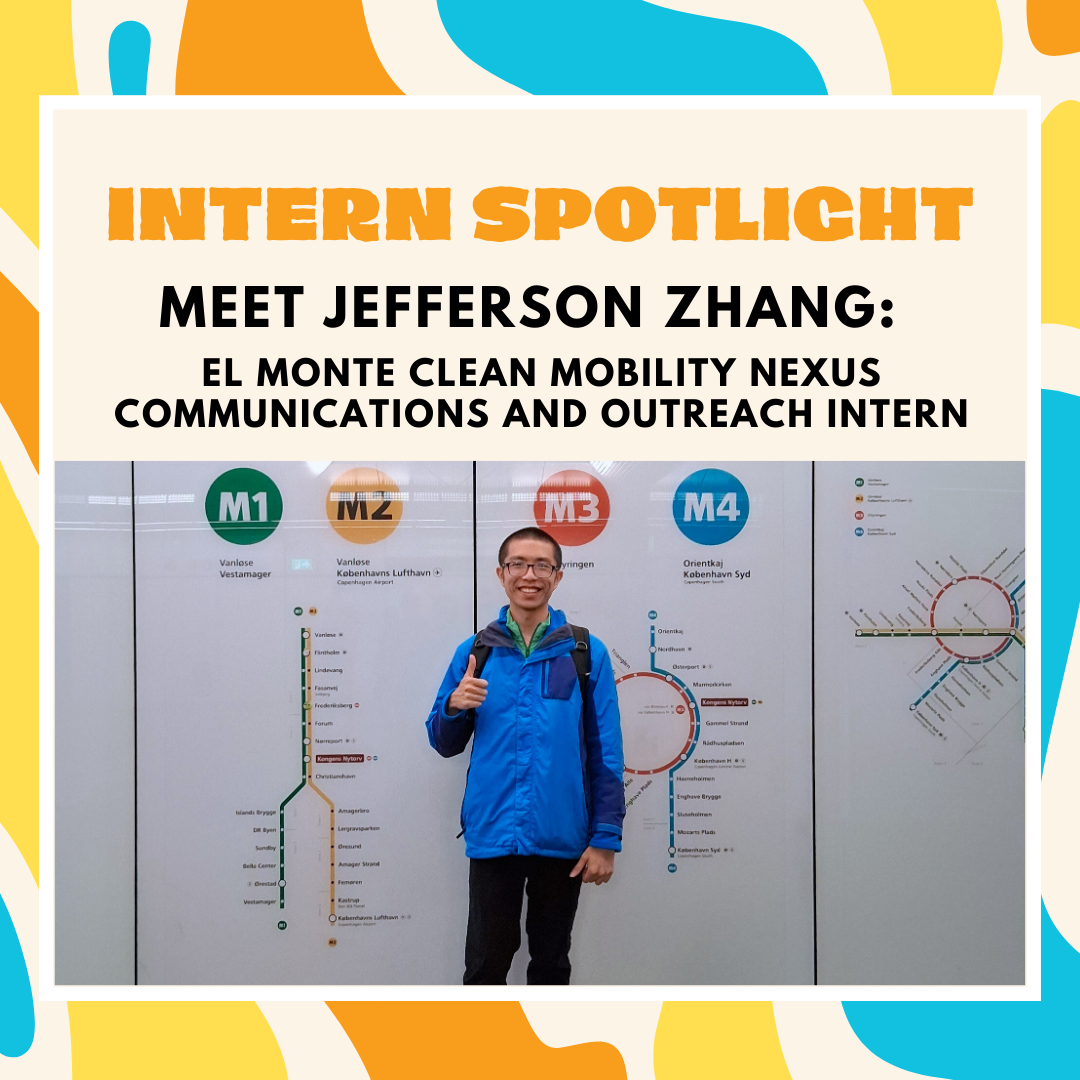More wonderful news from the SGV! It appears that the I-10 Active Commute, Healthy Community (ACHC) Project, developed by BikeSGV under the lead of the City of El Monte, will be launched in the coming months thanks to Metro ExpressLanes Toll Revenue. The comprehensive, multi-jurisdictional outreach and education program seeks to improve public health, community connections, air quality, economic development, and sustainability by encouraging greater use of active and public transportation along the I-10 corridor in the San Gabriel Valley.
Led by the City of El Monte and developed by BikeSGV, the project will accelerate the use of active transportation along the I-10 by utilizing the following key strategies in the communities of El Monte, South El Monte, Baldwin Park, Monterey Park, San Gabriel, Rosemead, Avocado Heights, South San Gabriel, and West Puente Valley:
- Active Commute, Healthy Commuter (ACHC) courses - 3-hr education courses will combine in-class instruction, parking lot drills, and a short bike ride on city streets to teach participants how to use bikes on transit (e.g., bikes on buses, access the El Monte Transit Center), plan safe routes, avoid collisions, securely lock a bicycle, be visible when bicycling in the dark, carry goods/supplies, and ride in a safe, predictable and legal manner.
- E-Bike Rebate Program - The eBike program will introduce community members to the benefits of zero-emission electric bicycles via test rides, community presentations, and informational materials. Upon completing an Active Commuter course, qualified residents will be offered a $350 discount voucher toward the purchase of an eligible e-bike (models TBD).
- Bicycle Cooperative and Education Center (Bike CoOp) - Fletcher Park in El Monte is the planned home for the SGV's first bicycle cooperative and education center. Aimed at helping youth and low-income residents overcome the barrier of purchasing and operating a bicycle center, it will recycle donated and abandoned bicycles (e.g., abandoned on public furniture) back into the general public via build-a-bike programs. Basic maintenance classes, along with access to tools and technical expertise, will lower the cost and knowledge barriers to bicycling for residents, especially youth and lower SES populations.
- ACHC Public Information Campaign - Community outreach will inform residents and key stakeholders about the benefits of active transportation and transit. Methods will include print messaging, social media, PSAs, public event tabling (e.g., festivals, fairs), and presentations to community groups. A project website will also be developed to serve as a platform for project updates, materials, and more.
Working in tandem, these strategies are designed to capitalize on existing momentum along the corridor around active transportation planning and policy (e.g., SGV Regional Bicycle Master Plan Project) by informing project area residents about the many benefits of active and public transportation, empowering residents to use a bicycle as a form healthy, inexpensive transportation in conjunction with public transit; introducing the public to zero-emission electric bicycles; and providing project area residents, especially youth and low-income individuals, a space to learn how to maintain and receive low/no cost bicycles.
E-Bikes in the SGV
E-bike education, outreach, and incentives will inform community members about an innovative active transportation option that has become increasingly affordable and convenient. Various e-bike models (e.g., folding, women’s, commuter w/ panniers) will be brought to outreach events to highlight new technology to the public, used by program staff to attend meetings/events, and made available for test rides. After completing an ACHC course, qualified residents will be eligible for a $350 discount voucher on select models while supplies last. By showcasing to the public firsthand how these low-cost electric vehicles can be used to replace short trips and in conjunction with transit, these efforts will help accelerate local adoption of this sustainable transportation alternative within the I-10 corridor.
The project’s E-Bike incentive and education program will be the first of its kind in Los Angeles County and likely the state of California. The program will inform the public about the benefits of relatively low-cost, “zero emission” electric bicycles as alternatives to more expensive electric motorcycles and automobiles, allow local residents to test ride one of several different models, and provide a financial incentive ($350 discount off of selected models) to residents of the project area who are ready to purchase one for commuting.

Thanks to dramatic improvements in the relative cost, performance (i.e. range), and comfort over the past few years, e-bikes are growing in popularity around the world. IKEA has just begun selling an electric commuting bicycle with a rear rack, the “Folkvanlig”, which retails at about $1,000 (750 euros), offers a 37-45 mile range off a 6-hour charge in a standard outlet, and will likely be rolled out to US-based stores within a year. Several manufacturers also now make electric folding bicycles, providing an opportunity to integrate bikes on buses without burdening the bus rack system. In short, now is an opportune moment to promote the use of this emerging technology as a sustainable, efficient, and cost-effective alternative to other modes of transportation, especially when used in conjunction with public transit.
Still rare in the region, e-bikes are also particularly well-suited for segments of the public who would not otherwise consider active transportation options for commuting. Examples include persons who have trouble climbing hills (e.g., elderly, less fit) or live in hilly neighborhoods, have longer commutes, are time pressed, are interested in electric vehicles but unable/willing to purchase a more costly EV, and/or want to arrive at work without sweating. E-bikes address all of these issues, yet still suffer from a stigma in the United States that bicycles are a way to exercise rather than a mode of transport. The proposed innovative project will address these perceptions through educational outreach and financial incentives.



